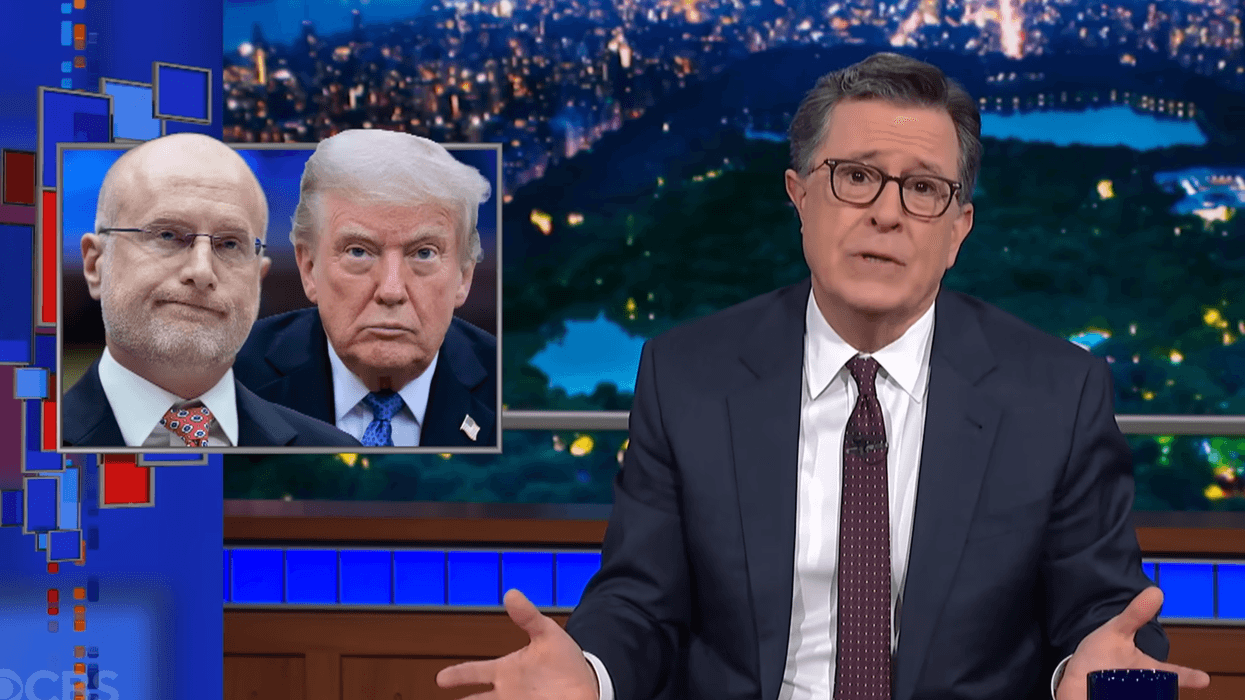A horde of officers hopped out, raced toward Flores, and tackled him to the ground, footage recorded by a neighbor shows.
By Friday, Flores was already in an ICE detention facility in Texas, awaiting deportation.
“They lied to my dad that they needed help with their car,” said Flores’ son Miguel, who—like his siblings—is a US citizen. “I mean, they figured out that he was a mechanic. You know, my dad’s a generous guy, he’s willing to help anybody.”
Though he is undocumented, Flores, who is from Mexico, has lived in the US for more than 15 years.
In a statement to the Independent, Tricia McLaughlin, a spokesperson for the Department of Homeland Security (DHS), claimed that Flores was "a criminal illegal alien [from] Mexico and former Vatos Locos 13 gang member who was removed TWICE from this country, a felony." She added that "his criminal history includes an arrest for felony assault."
Fox 9 Minneapolis-St. Paul previously reported that when it searched for Flores' criminal history, it found only parking violations.
The vast majority of those who have been swept up in President Donald Trump's "mass deportation" campaign have not had any criminal records. According to data from DHS on January 25, just over 74% of those held in ICE detention have no criminal convictions.
"The main reason he came here to the United States and was willing to come back is to give us a better life, and that’s what he’s done. He’s sent me and my sister to college," Miguel told Fox 9. "There’s no other reason to deport my dad, he’s a hard-working individual."
Miguel’s father was the victim of the sort of deceptive tactics that have become a hallmark of ICE arrests and have often been deployed during Operation Metro Surge in Minneapolis and the surrounding area.
As the Associated Press reported earlier this month, ICE has regularly relied on what the agency calls "ruses" to pursue targets.
According to Minnesota's large network of citizen observers, agents have shown up at construction sites in hard hats and yellow vests to lure laborers into their clutches. They've disguised themselves as delivery drivers or electricians to trick home and business owners into coming outside. They've been filmed leaving scenes with Mexican flag decals on their bumpers and stuffed animals on their dashboards. And in some cases, they've even posed as anti-ICE activists.
These tactics are not new. An agency memo from 2006 described them as "an effective law enforcement tool that enhances officer safety" and claims they are used "to prevent violators from fleeing and placing themselves, officers, and innocent bystanders in a potentially dangerous situation."
But Naureen Shah, the director of immigration advocacy at the ACLU, argues that they have only sown chaos.
“If you have people afraid that the electrical worker outside their house might be ICE, you’re inviting public distrust and confusion on a much more dangerous level,” she told the AP. “This is what you do if you’re trying to control a populace, not trying to do routine, professional law enforcement.”
These tactics became more common during Trump's first term, prompting a lawsuit from the ACLU, which claimed they violated the Fourth Amendment.
In August, a settlement banned agents from misrepresenting their identity and purpose in Los Angeles, but the practice continued elsewhere in the US.
Shah said ICE appears to be using these tactics in Minnesota to a "more extreme degree than we’ve seen in the past."
Jesus' arrest comes as Trump's border czar, Tom Homan, who was put in charge of Metro Surge, said the operation was drawing to a close, with thousands of agents leaving the Minneapolis area.
However, this and other incidents in recent days have left residents on edge.
During the operation, CBS News Minnesota reported that Flores had been hunkered down in his home for weeks, hoping to avoid arrest.
Miguel said his family fears they may never see their father again.
Flores had already been deported once, 15 years ago. Miguel said lawyers have told him that getting his father out of detention would be a long shot.
Because immigration offenses are handled in civil court, Flores is not entitled to a government-paid public defender, as in criminal cases.
Miguel said his family is in desperate need of money, not just to pay for a lawyer but also to cover the cost of living and his siblings' medical expenses. Flores' wife, Dionicia, has described her husband as the family's "lifeline."
"This unexpected situation has left our family shocked, scared, heartbroken, and searching for answers," Miguel wrote. "Jesus is leaving behind four children who depend on him every day. My older brother, who is 25 years old and was diagnosed with autism from a very young age, my little brother—9 years old—who was born with a whisper in the heart, my other little brother who is 6 years old is in therapy and requires extra care and support and was diagnosed with autism, and lastly my little sister who is 7, who is in need of multiple surgeries and ongoing medical care."
In just three days, the family's fundraising campaign has received more than $13,000.





